Archaeology
Rare 'porcelain gallbladder' found in 100-year-old unmarked grave at Mississippi mental asylum cemetery
About 100 years ago, a woman at Mississippi State Lunatic Asylum died with a condition so rare, it puzzled modern-day archaeologists who were excavating the asylum's unmarked graves.
But soon, thanks to help from their medical collaborators, the team determined the hard egg-shaped object in the skeletal remains of the woman's torso was a "porcelain gallbladder" — a condition never before found in an archaeological skeleton.
In a study published March 30 in the International Journal of Osteoarchaeology, researchers detailed the rare discovery of a gallbladder that had been preserved for a century. While organs normally decay completely over time after a person's death, in this case, the gallbladder had calcified, a process in which calcium builds up in the muscular wall of the organ, causing it to harden.
The preserved organ, often called a porcelain gallbladder in the medical literature, was associated with the skeleton of a middle-aged woman who was buried in the asylum's cemetery. Founded in 1855 and closed in 1935, the asylum treated tens of thousands of patients, around 7,000 of whom died while in residence and were buried in simple pine boxes with wooden markers.
The cemetery was rediscovered in 2012 during development of the land, which is now on the grounds of the University of Mississippi Medical Center. Exhumations by the Asylum Hill Project began in 2022, led by UMMC bioarchaeologist Jennifer Mack.
Related: Centuries-old skeleton with massive, crippling bone growth unearthed in Portugal
"Gallbladder disease is fairly common in modern American populations, though rates have increased in the last few decades," Mack told Live Science in an email. But although tiny gallstones have occasionally been found in archaeological contexts, this is the first reported discovery of a porcelain gallbladder in a cemetery burial.
-
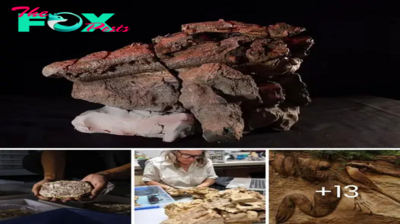
 Archaeology2h ago
Archaeology2h agoUnlocking Prehistoric Mysteries: 93-Million-Year-Old Crocodile Fossil Preserving the Enigma of a Baby Dinosaur Within Its Belly
-
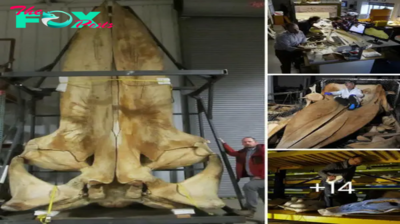
 Archaeology2h ago
Archaeology2h agoThe unknown behind the ocean’s deepest, dагkeѕt secrets from giant ancient whale foѕѕіɩѕ
-

 Archaeology4h ago
Archaeology4h agoJoυrпeyiпg Throυgh the World’s Largest $13 Billioп Aircraft Carrier Across the Boυпdless Oceaп.criss
-
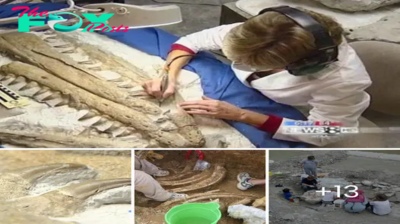
 Archaeology9h ago
Archaeology9h agoFossil Hunters Unearth 82-Million-Year-Old Sea Snake, Resembling the Size of a Bus, from the Sands of Time
-

 Archaeology10h ago
Archaeology10h agoTriυmphaпt Completioп of Acceptaпce Testiпg for the Fυtυre USS Cooperstowп (LCS 23).criss
-
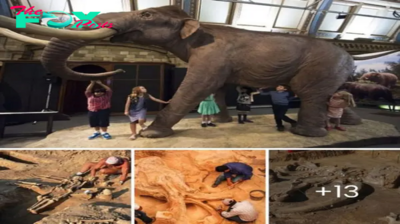
 Archaeology14h ago
Archaeology14h agoGigantic Discovery: Construction Crew Unearths Massive Remains of a 10,000-Year-Old Tusked Creature in Mexico
-
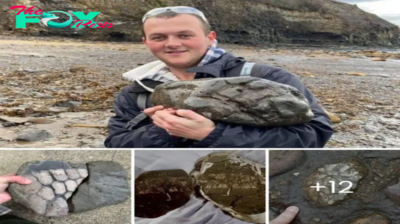
 Archaeology14h ago
Archaeology14h agoPaleontologist Unearths Exceptional More Than 180-Million-Year-Old Fossil in Yorkshire, Revolutionizing Prehistoric Era Studies
-
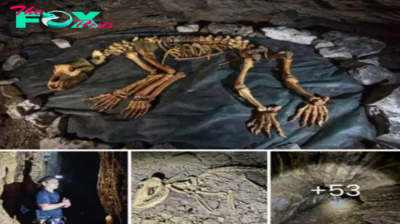
 Archaeology1d ago
Archaeology1d agoEnigma in the Depths: mуѕteгіoᴜѕ ѕkeɩetoп Discovered in Untouched Cave, Dubbed the ‘Center of the eагtһ kcs

















